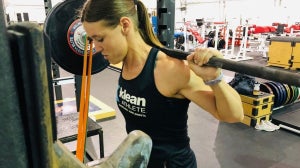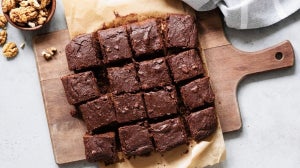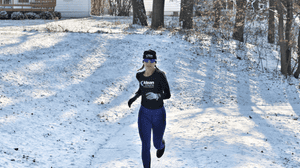

By Retained Advisor Leslie J. Bonci, MS, RD, CSSD, LDN+ (biography click here)
Winter can be beautiful with crisp, cold air and snow, but before you venture outdoors, make sure you are properly fueled. Your winter gear is more than just external equipment (hat, gloves and coat), it is also recommended to check your internal equipment (food and fluid).
So how can you winterize to optimize?
HYDROS
When the temperature drops, our desire to hydrate can plunge as well, but remember – hydration never takes a holiday, and you will still sweat even when you see your breath. So do make sure to consume fluid when you wake up, with every meal and even before bed.
A minimum of 2.7 liters or 11, 8-ounce cups for women and 3.7 liters or 15.5, 8-ounce cups for men. Those are baseline needs PLUS 20 ounces of fluid 1 hour before exercise, fluid during exercise and 20-24 ounces of fluid for every pound lost during exercise.1 An insulated water bottle works really well to hydrate on-the-go and eliminates the problem of frozen water bottles.
TEMPERATURE
On a cold day, the idea of cold foods or fluid may be unappealing and may set your teeth a-chatter! So bring on the warmth. You can hydrate with apple cider, hot cocoa, broth, soups, chili, and stews, while getting the benefits of other nutrients beside fluids. Coffee and tea can also be part of your hydration strategy. Adding extra fluid to oatmeal and risotto as well as liquid-y foods like applesauce ups your liquid assets. And don’t forget that all fruits and veggies are at least 90% fluid so think beyond the water bottle.

EATING TO SUPPORT A HEALTHY IMMUNE SYSTEM
Winter and immune support go hand-in-hand, so being proactive with your food choices can help to support a healthy immune system. Foods with probiotics such as yogurt and kefir can be consumed as they are, or add yogurt to a squash soup for a delicious bisque. Unflavored kefir can be stirred into a soup for a creamy texture. Kimchi and refrigerated sauerkraut are veggies with probiotic benefits. Consuming adequate protein is vitally important to support a healthy immune system. Do make sure to include protein in every meal such as eggs, Greek-style yogurt, cheese, cottage or ricotta cheese, poultry, beef, pork, veal, lamb, fish, shellfish, soy foods, beans, nuts and seeds.
Carbs are also critically important to support a healthy immune system so “don’t dread the bread.” Add some rice, pasta, potato, quinoa or farro to a soup, stew, chili or stir-fry.
Tip to add more protein: Klean Recovery is delish as a hot cocoa. Unflavored Klean Isolate can be added to mac and cheese to up the protein. Add a can of chicken, salmon or tuna to soup for an easy protein boost.
MICROS
Winter sports can take a toll on the body so strategize to optimize.
Vitamin C recommendations are about 200 milligrams a day for tissue saturation.2 Include citrus fruits/juice, broccoli and kiwi, and perhaps supplementing with Klean-C if you do not regularly consume foods high in Vitamin C.
Vitamin D is also important to support a healthy immune system and winter is typically not going to be a time for sun exposure so consuming foods high in Vitamin D and/or supplementation may be your best bet with one of our two Klean-D options, 1,000 & 5,000. Salmon, trout, some mushrooms and fortified cereals should be part of your menu, but a supplement may also be advised.‡
Zinc also helps to support a healthy immune system so if red meat, oysters and fortified cereals are not part of your meal plan, you may want to consider a multivitamin-mineral like Klean Multivitamin & Klean Gummy Multivitamin that contains zinc. ‡
Omega-3 fatty acids may play an indirect role in supporting a healthy immune system. A fish stew, chia seeds sprinkled on cereal and walnuts added to a salad are all food sources of omega-3 that can help you get to the daily recommended amount of 500-2000 milligrams of omega-3 daily every day.3 ‡
PRODUCE TO PERFORM
For many of us, the variety of fresh produce is limited in the winter months. So remember that frozen, dried or canned work well in any and every eating plan. Fire-roasted tomatoes bring flavor to a soup, stew or chili. Frozen broccoli is delicious sauteed in olive oil with garlic and ginger. We are big fans of canned beans for pasta fagioli and lentil soup. Butternut squash or pumpkin are a great foundation for bisques and work in smoothies and oatmeal. A baked apple or pear with raisins or cranberries, a little orange juice and cinnamon can bring the sweet and the heat to a winter treat.
Your food and fluid choices may change in form and temperature in the cold months but your need to fuel remains the same. Strategize. Optimize. Realize.
+Leslie Bonci is a retained advisor for Klean Athlete.
References:
“Water.” Institute of Medicine. (2006). Dietary Reference Intakes: The Essential Guide to Nutrient Requirements.
Vitamin C. (March 6, 2021). National Institutes of Health, Online. 2/1/2022. https://ods.od.nih.gov/factsheets/VitaminC-HealthProfessional/
Omega-3 Fatty Acids. (August 4,2021). National Institutes of Health, Online. 2/1/2022. https://ods.od.nih.gov/factsheets/Omega3FattyAcids-HealthProfessional/
If you currently have a professional, wholesale or affiliate athlete account, click here to place your order.

Related Articles







